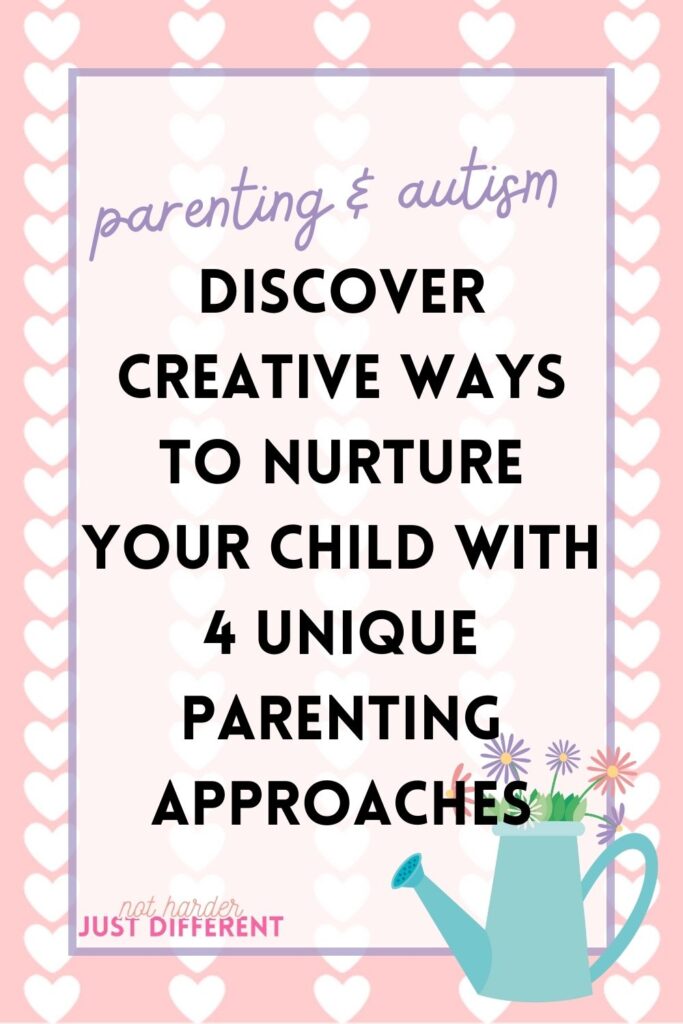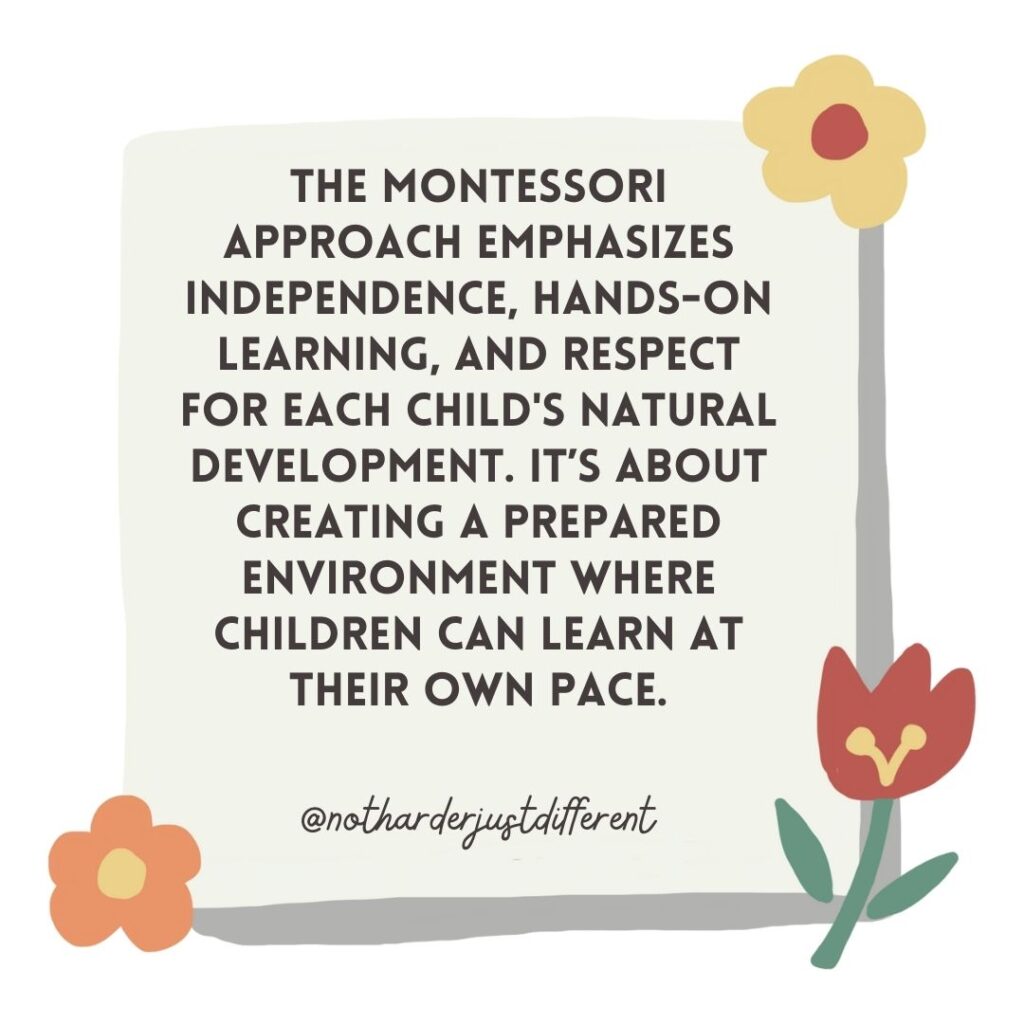Disclaimer: As a future Licensed Clinical Social Worker (LCSW) currently pursuing my master’s degree, I am passionate about sharing insights and information related to parenting, autism and homeschooling based on my personal experiences and research. However, the content shared on this blog is not intended to substitute professional advice, diagnosis, or treatment. Parenting is a deeply personal journey, and while I strive to provide valuable insights, every family and situation is unique. Readers are encouraged to consult with qualified professionals for personalized guidance tailored to their specific needs and circumstances.
Parenting is all about finding what works best for you and your kiddos, right? Sometimes, the traditional methods just don’t quite fit, and that’s where unique parenting approaches come in! These are creative ways to nurture and guide your child that might be a bit different from what you’ve heard before.
Whether you’re curious about gentle parenting, Montessori principles, or something totally off the beaten path, there’s a unique approach out there that could be a perfect fit for your family. Let’s dive into a few of these approaches and see if any resonate with you and your parenting style!

Gentle Parenting
Gentle parenting focuses on empathy, respect, and understanding your child’s emotions. It’s about guiding rather than controlling, and fostering a strong bond through positive communication.
Key ideas from Gentle Parenting:
- Positive Discipline:
Instead of punishments, gentle parenting uses positive reinforcement and logical consequences to teach lessons and encourage good behavior. - Emotional Coaching:
Emphasizes helping children understand and manage their emotions, promoting empathy and self-regulation. - Respectful Communication:
Encourages open and honest communication between parent and child, fostering trust and mutual respect. - Setting Limits with Empathy:
Involves setting clear boundaries while considering your child’s perspective and feelings. - Nurturing Independence:
Supports children in developing autonomy and decision-making skills at their own pace.

Montessori Method
The Montessori approach emphasizes independence, hands-on learning, and respect for each child’s natural development. It’s about creating a prepared environment where children can learn at their own pace.
Key ideas from Montessori Method:
- Child-Led Learning:
Children choose activities based on their interests and developmental readiness, promoting intrinsic motivation. - Hands-On Materials:
Utilizes specially designed materials that encourage exploration, problem-solving, and sensory development. - Mixed Age Groups:
Children of different ages learn together, fostering collaboration, empathy, and peer learning. - Freedom within Limits:
Provides freedom to explore within a structured environment that includes clear boundaries and expectations. - Focus on Practical Life Skills:
Teaches everyday skills like dressing, cooking, and cleaning, promoting independence and confidence.
Attachment Parenting
Attachment parenting emphasizes nurturing a strong emotional bond between parent and child. It focuses on responsiveness, empathy, and meeting a child’s needs promptly.
Key ideas from Attachment Parenting:
- Co-Sleeping:
Encourages sleeping close to your child to promote bonding and responsiveness to nighttime needs. - Babywearing:
Carrying your baby in a sling or carrier promotes closeness and allows parents to respond quickly to their child’s cues. - Responsive Feeding:
Responding promptly to your baby’s hunger cues, whether breastfeeding or bottle-feeding, to support emotional and physical needs. - Positive Discipline Techniques:
Using gentle methods like redirection and modeling appropriate behavior to guide your child’s actions. - Building Trust through Responsiveness:
Responding promptly to your child’s emotional and physical needs helps build a secure attachment and fosters independence.
Unschooling
Unschooling isn’t just a homeschooling method; it’s a lifestyle that embraces learning as a natural part of everyday life. Unlike traditional schooling, unschooling encourages children to explore their interests freely and learn through real-life experiences rather than structured lessons.
Key ideas from Unschooling:
- Child-Led Exploration:
In unschooling, children follow their natural curiosity and passions, diving deep into subjects that intrigue them. This approach fosters a genuine love for learning because it’s driven by personal interest and enthusiasm. - Everyday Learning Opportunities:
From cooking in the kitchen to exploring nature outdoors, unschooling sees every moment as a chance to discover and understand the world. Children learn through hands-on experiences and interactions with their environment. - Flexibility and Spontaneity:
There are no rigid schedules or set curriculum in unschooling. Learning happens organically throughout the day, allowing for flexibility to pursue interests and adapt to each child’s unique learning pace. - Emphasis on Critical Thinking:
Unschooling encourages children to ask questions, seek answers, and think critically about the world around them. By exploring topics deeply and independently, they develop strong problem-solving and analytical skills. - Trust in Natural Learning Processes:
Parents trust that children are naturally curious and motivated learners. By supporting their interests and providing resources, unschooling nurtures a sense of self-direction and lifelong learning.
These unique parenting approaches offer different perspectives and methods for nurturing your child’s growth and development. Whether you’re drawn to gentle guidance, hands-on learning, strong attachments, or child-led exploration, there’s a style that can fit your family’s values and dynamics. It’s all about finding what feels right for you and your little ones on this incredible parenting journey!

